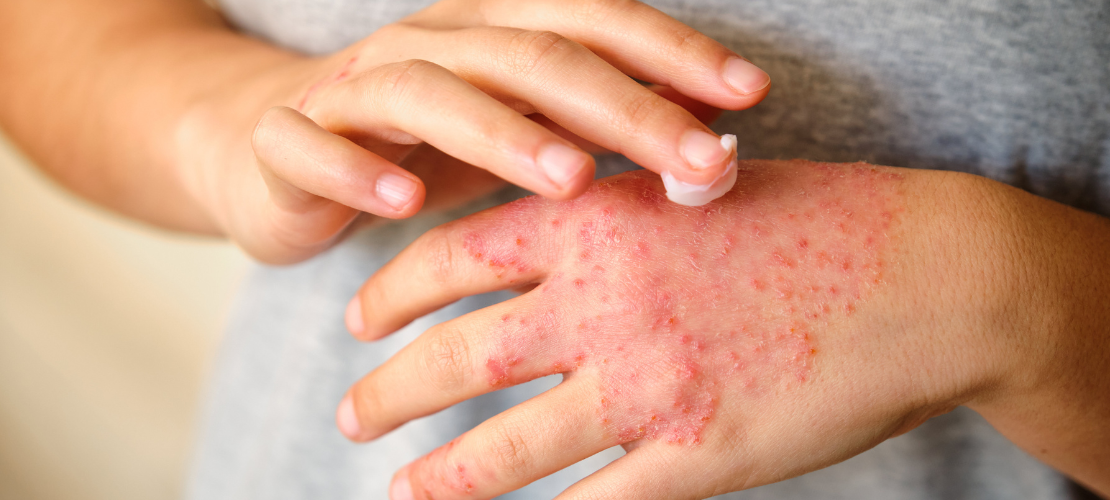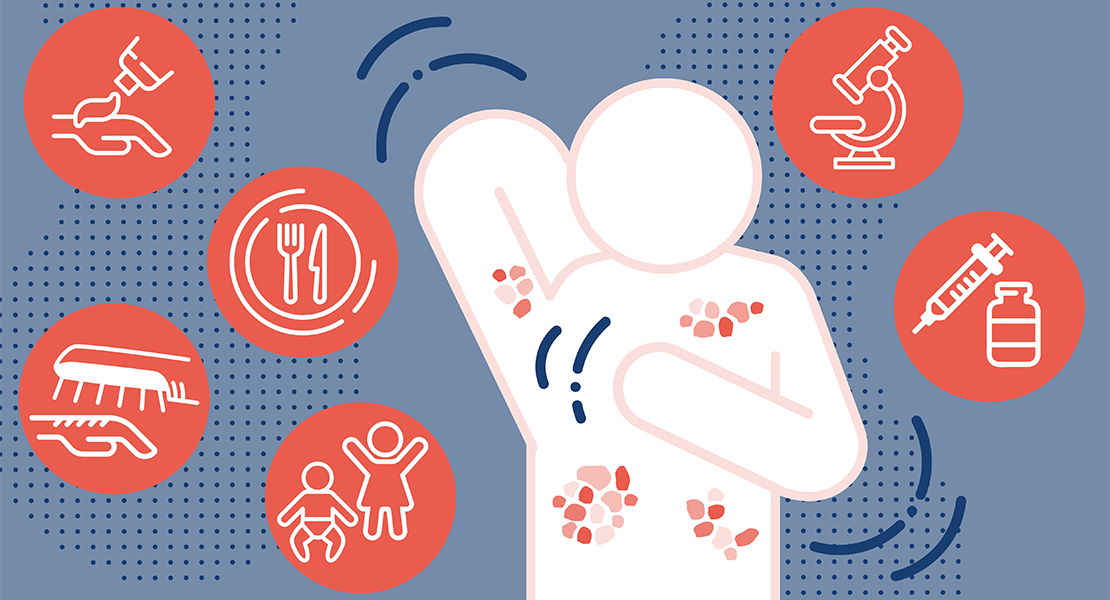Eczema is one of the most common inflammatory skin conditions worldwide. It affects around 20% of children and 10% of adults.
Symptoms include red, inflamed skin that may become crusted, and intense itching that drives a vicious itch–scratch cycle. Eczema doesn’t just affect the skin, but has wide-ranging impacts on sleep, concentration, and even mental health.
Professor Carsten Flohr is a dermatology researcher at King's College London and an expert in children's eczema. He speaks to us about why the condition can be such a challenge and how research is finding new treatments.

What is it like living with eczema?
Living with eczema can be exhausting. The relentless itch can disrupt sleep for years, especially in young children. Poor sleep affects mood, learning, and daily concentration. Unfortunately, some children never fully establish a normal sleep rhythm.
Eczema deeply affects both the body and the mind. Many young people develop anxiety or depression as the condition continues into their teens. Research even shows changes in brain activity in teenagers with eczema that resemble patterns seen in ADHD.
The sensitivity of inflamed skin means that even mild sensations, like wind against your skin, can feel painful. This physical discomfort, along with sleep loss, means eczema can significantly reduce quality of life.
What causes eczema?
Eczema does not have a single cause. Instead, it results from a mix of genetic and environmental factors. One of the strongest genetic risks is a mutation in a skin-barrier gene called filaggrin. This weakens the skin’s natural barrier, making it easier for water to escape and irritants to enter.
Triggers in our environment include hard water, pollution, pollen, and even certain types of food allergens. By contrast, early exposure to farm environments can be protective against eczema.
How can eczema be treated at home?
To help treat the symptoms of eczema, protecting the skin barrier is essential. This means:
- using fragrance-free moisturisers
- avoiding known triggers like harsh soaps, scented products, and sometimes even sunlight
- considering extra measures like antihistamines for seasonal flares
There are also several treatments available, including creams, tablets and injectables. Your doctor or pharmacist can help you find the right one. In more severe cases, you will benefit from seeing a dermatologist.
How is research helping to improve eczema treatments?
Clinical research is delivering big improvements in eczema treatment. The TREAT Trial directly compared two known medicines for severe childhood eczema. These were methotrexate and ciclosporin. For years, doctors lacked robust evidence about which worked better.
The TREAT Trial showed that methotrexate works a bit slower than ciclosporin, but is more effective with longer treatment. It also helps stop eczema returning after treatment has stopped. The medicine is a fraction of the cost of ciclosporin. The trial’s findings now guide eczema care around the world, especially in regions where ciclosporin is unaffordable.
There are many new eczema treatments available, especially for patients with severe disease. These include “biologics” and “small molecule” treatments.
Sometimes, the range of treatments makes it hard for doctors and patients to decide which to choose. A useful resource is the Eczema Therapies website, which I co-developed with international colleagues and patients. It allows patients and doctors to compare the effects of different treatments using the latest data from research.
What are the big unanswered questions in eczema research?
Despite progress and new treatments continuing to emerge, there are still many unknowns. We are particularly interested in the skin microbiome - the community of bacteria and fungi that live on our skin. How do they trigger the development of eczema and disease flares?
Scientists are also looking at how early life exposures shape eczema risk. Other studies look at the links between eczema, allergies, and the immune system.
"The goal is to move beyond managing symptoms to preventing eczema from developing in the first place."
- Professor Carsten Flohr
Join an eczema clinical trial:
Eczema studies currently recruiting participants include:
- Mind and Skin - the neurocutaneous axis in atopic eczema
- The UK-Irish Eczema Register
- A-Star Bio - collecting information on children and adults with eczema to determine how well drugs work in the long term
- BEACON - Best systemic treatments for adults with atopic eczema over the long term
- A Study to Assess the Efficacy and Safety of Ruxolitinib Cream in Children and Adolescents (6 to <18 Years Old) With Moderate Atopic Dermatitis
Use our study search tool to find a study that interests you.
How you can get involved with research
Sign up to Be Part of Research to be contacted about a range of health and care research. Or check out our full list of studies to see if one is right for you.
And if taking part in a study doesn’t feel right at the moment there are other ways to get involved in research.








